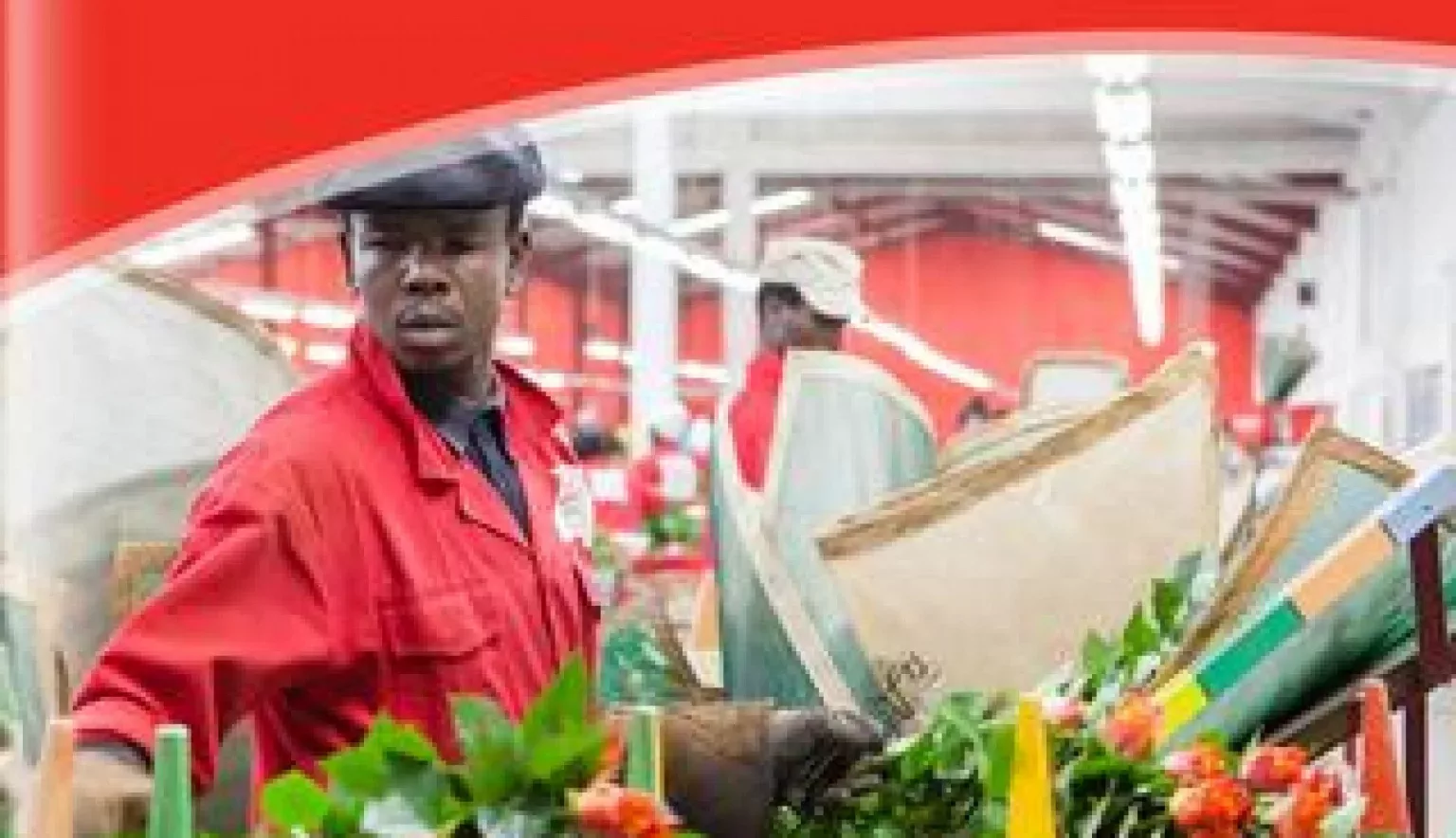Subati Flowers adheres to the highest quality standards, providing seamless delivery of the freshest and most beautiful flowers to your doorstep.
PURE EXPRESSIONS
Supported by horticulture’s continuing status as one of the fastest growing industries in Kenya’s export sector, Subati Flowers Ltd has seen great success, marking its 10th anniversary this year.
In 2007 the land and assets of a rose farm named Subati Ltd were purchased by promoters, the land – located on the equator, 35 kilometres North of Nakuru town – comprising an 89 hectare farm with 12 hectares of roses under greenhouses, producing 750,000 stems a month of 12 different varieties.
Subati Flowers sits at the ideal altitude of 2,200 metres about sea level and continues to benefit from fertile red soil, a unique microclimate, all of which contributes to the production of Kenya’s finest T-hybrid and Spray roses. Its production was quickly increased by 350,000 stems a month in February, 2008 – due in part to a new feeding regime – taking the total production up to 1.1 million stems a month.
“We have experienced vast levels of expansion during our 10 years in the industry, particularly in mid 2008 when the shareholders decided to increase the area of production by 12 hectares,” explains Ravi Patel, Managing Director at Subati Flowers Ltd. “This particular expansion was completed in January, 2009 and with it production gradually increased to approximately two million stems a month.”
The Subati brand was firmly planted in the industry by that point as the demand for its roses began to grow at a rapid rate, faster in fact than the Company could supply initially. In response to this demand, 2001 saw the Company embark on a further 17 hectare expansion – after delays due to heavy rain – which was completed in December, 2013.
“In the following two years we saw the completion of the final expansion in our three and nine hectare projects respectively,” continues Patel. “Today we have a total of 91 hectares of greenhouses which produce more than 90 million stems of high quality T-hybrid roses per year.”
Last year saw Subati Flowers Ltd rebranding itself to the Subati Group Ltd, making way for the diversification of the Company’s agriculture portfolio from flowers to herbs, setting up a herb farm which is located in Kibwezi, 300 kilometres South of Nairobi.
“The project looks set to be one of a kind in Kenya, producing basil, chives and mint spread across 20 hectares of covered greenhouses,” adds Patel. “The greenhouses will have an automated fogging system in order to control the humidity and temperatures within; these herbs will be packed and exported using the highest quality standards and global certifications to Europe, the Middle East and Australia.
“This entire project will be solar powered using the panels installed on the roof of the grading hall and we hope to produce our first harvest of Mint and Basil in August, 2017.”
NICHE VARIETIES
The Company’s main strategy has always been to create a brand by producing an extremely high quality product with the service to match.
“We have always catered to the needs of the direct market and set trends consistently throughout Subati’s evolution,” affirms Patel. “To support this we have created extensive testing programmes, following the principal that if you don’t try you will never know; we particularly enjoy planting niche varieties and will always try to be the first to do so.”
In recent years the Company has introduced many new lines to its ever- evolving product range, including scented roses, garden roses and cluster roses. It has continued to work with the top breeders in the industry to improve the selection and quality of the new codes, ensuring that Subati is ahead of the curve and attracting new customers to the brand at all times.
“The Subati brand currently reaches more than 40 countries globally, with our main markets being located in Eastern Europe, the Middle East and Australia,” continues Patel. “We promote the brand by exhibiting in various flower shows around the world, and in 10 short years we have been to more than 35 exhibitions and have amassed 100 active customers.
“When it comes to identifying new regions to supply to, we carry out research on aspects such as the size of the market, growth potential, stability in the country and its currency, as well as the ease of logistics from Kenya.”
HARD WORKING LABOUR FORCE
The level of farming required in the Company is particularly labour intensive, luckily in Kenya Subati is privy to a good and hard working labour force. With more than 2,000 employees – only six of which are not Kenyan – it places a big emphasis on local employment.
“At Subati we do understand the value in the need for constant training and innovation,” explains Patel. “Since the Company began we have always engaged our staff in training exercises and within those realms, encouraged them to attend external training seminars held by various supporting companies.”
Post and Pre harvest consultants tend to provide the main source of training for the Company, visiting Subati every month from Israel and France to train staff on new techniques and processes to improve quality and efficiency in produce.
“We have always considered our staff as our greatest asset at Subati, therefore we are particularly dedicated to bettering their lives and the lives of those around them,” continues Patel. “Lunch is provided to all staff on our farms, with ingredients which are all sourced locally from small-scale farmers in the surrounding area.”
As well as its commitment to employees, Subati is also greatly involved in helping the community and environment around it, carrying out various community service projects which include providing clean water to Tetu town, carrying out road works and fixing broken bridges in the local area.
“The past six years has seen us help to build three schools in the area, providing them with labour and the materials required for the job,” Patel describes. “Our most recent project is helping to re-build and modernise Tetu Primary School, a school with more than 500 students, 200 of which have parents working at Subati Flowers.”
This year the Company has already dedicated four million shillings to building four new classrooms, six toilets and the levelling of the football pitch and supplying sports equipment to the school.
“Over the years Subati has become a brand that symbolises quality, consistency and service,” concludes Patel. “Our ability to innovate and adapt to changes in the needs of the market is what differentiates us from others in the industry. It is this factor that has driven us to become a one-stop-shop for our customers, providing a very large product range of high quality produce.































